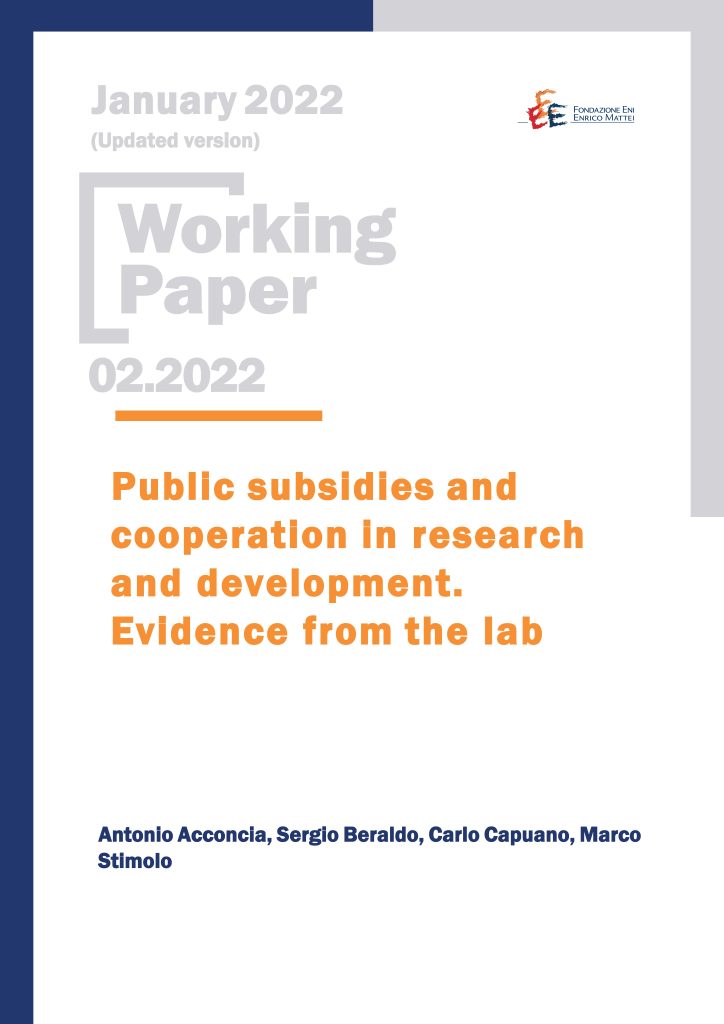Public subsidies and cooperation in research and development. Evidence from the lab

26.01.2022
Antonio Acconcia, University of Naples ‘Federico II’ and CSEF; Sergio Beraldo University of Napoli ‘Federico II’ & CSEF; Carlo Capuano, University of Napoli ‘Federico II’ & CSEF; Marco Stimolo, University of Campania ‘Luigi Vanvitelli’
L24, O3
Cooperation in R&D, Public Subsidies, Knowledge Spillovers, Market Competition
We implement an experimental design based on a duopoly game in order to analyse the impact of public subsidies on the willingness to cooperate in research and development (R&D) activities. We first implement six experimental markets by exogenously varying the level of knowledge spillovers (low or high) and the intensity of competition in the product market (low, intermediate, or high). We find that the probability of cooperation increases in the level of spillovers and decreases in that of market competition. We then replicate the six experimental markets by subsidising subjects who cooperate. Whenever they are sufficient to change the incentive structure of the game, subsidies substantially increase the probability of cooperation, causing, however, a reduction of R&D investments. Overall, our evidence suggests that, depending on the characteristics of the market, the provision of subsidies is not always desirable. These might be redundant because firms have sufficient private incentives to invest cooperatively in R&D, or even counterproductive, as they might induce firms to significantly reduce R&D investments compared to the noncooperative scenario.
Note
This is the latest version of the paper, submitted and approved in May 2023 after substantial revision carried out by the Authors. The first version appeared in FEEM Working Papers ‘Note di Lavoro’ in January 2022.
***
Suggested citation: A. Acconcia, S. Beraldo, C. Capuano, M. Stimolo (2022), ‘Public subsidies and cooperation in research and development. Evidence from the lab’, Nota di Lavoro 02.2022, Milano, Italy: Fondazione Eni Enrico Mattei
